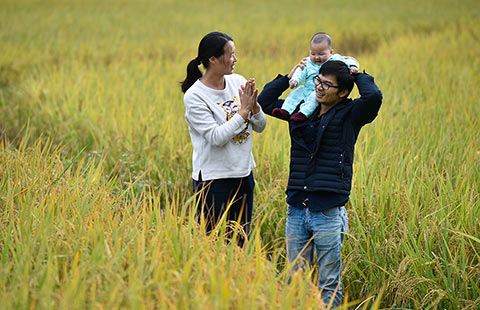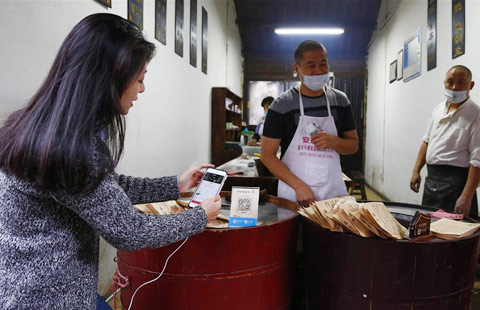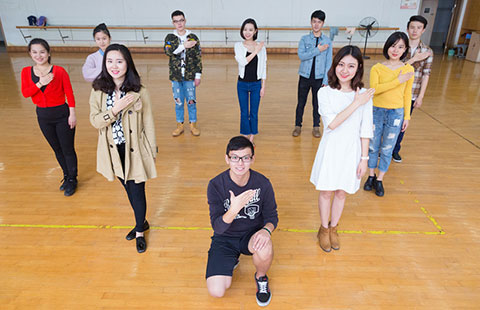Inflation edges up in October
China's consumer price index grew by 2.1 percent in October on a year-on-year basis, up from 1.9 percent in September, the National Bureau of Statistics said on Wednesday.
The CPI, a key gauge of inflation, had ended four consecutive months of decline in September, when it rose to 1.9 percent. The 2.3 percent year-on-year figure reached in April was tied with February and March for the highest level since July 2014.
Consumer inflation, however, declined by 0.1 percent in October month-on-month.
Yu Qiumei, a senior statistician at the NBS, said the main reason for the CPI's rapid year-on-year growth is the comparatively low CPI during the same period last year.
Food prices rose by 3.7 percent year-on-year in October, while they rose by 3.2 percent in September. Vegetables rose by 13 percent year-on-year, fruit by 6 percent and pork by 4.8 percent.
"On a month-on-month basis, the decline of the CPI in October is mainly a result of the fall in food prices." Yu said.
Due to the sufficient supply of fresh food on the market recently, many prices dropped month-on-month in October, including eggs by 4 percent, pork by 2.8 percent, marine products by 1.8 percent, fruit by 1.7 percent and vegetables by 0.9 percent.
Other nonfood prices including medical treatment, services and clothing increased during the month, said NBS.
The producer price index, which measures the cost of goods at the factory gate, and may influence the CPI, was released on the same day by the NBS. In October, the PPI grew 1.2 percent year-on-year, which is the highest growth since December 2011 and is far beyond market expectations.
The rapid price increase in five major industries - including coal mining and washing, petroleum processing, and petroleum and gas extraction - mainly contributed to the PPI's rapid growth this month, according to the NBS.
Deng Haiqing, chief economist with JZ Securities, predicted that China's CPI will be in the 2 to 2.5 percent range in the next three months, given the established record and low base.
"It seems unlikely that the central bank will increase the interest rate in the short term," Deng said.
Ren Zeping, chief economist of Founder Securities, said China's CPI is likely to fluctuate around 2 percent and PPI growth likely will further expand.
"Policy should be turned toward curbing bubbles and controlling risks" Ren said. "China's economy will step into light stagnation from the fourth quarter of 2016 to the first quarter of 2017."

















